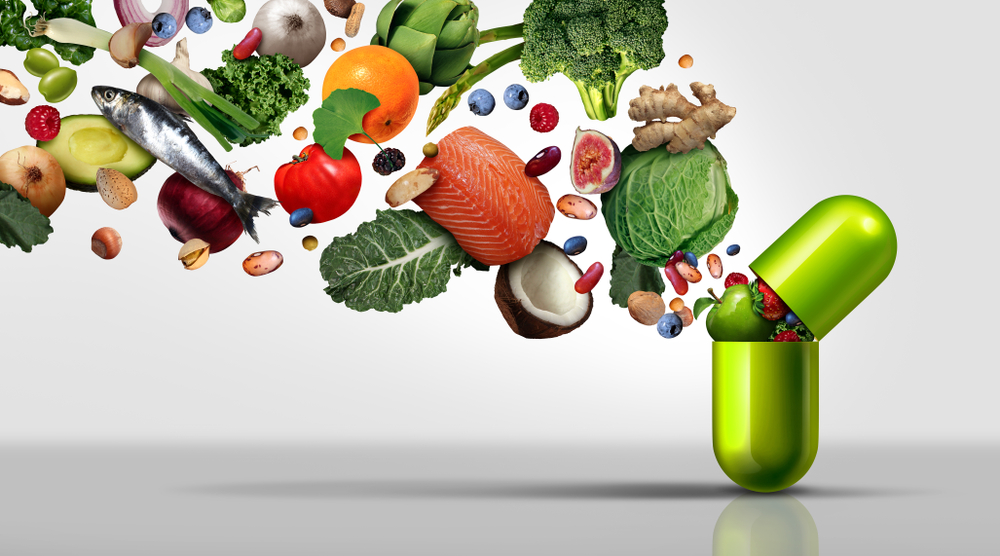Why We Tried It
Sometimes, it’s tempting take nutrition short cuts. Like, getting ALL your nutrients in one drink. Why focus on a planning a balanced plate or getting in a variety of colors if you can simply drink it? That’s part of the promise of a popular drink mix tailored to athletes called: “Athletic Greens.” Athletic Greens is a drink mix that provides your daily vitamins, minerals, pre and probiotics, and antioxidants. They claim it is a phytonutrient (plant-based) powerhouse providing digestive, immune, metabolism, and stress support.
Could this be the magic elixir we have all been waiting? Is it worth the hype and price tag?
Athletic Greens Mission and Quality
The mission of Athletic Greens is to “bring comprehensive and convenient daily nutrition to just about everybody.” They source high-quality ingredients and also carry third-party NSF certification (important for any supplement). Supplements are not highly regulated by the FDA, so we applaud Athletic Greens for going above and beyond in terms of certification.
What’s In Athletic Greens (AG1)?
The drink contains 28 vitamins and minerals, 19 whole food sourced nutrients, 3 pre and probiotics, and 22 adaptogens that offer unique health benefits. Let’s break it down by nutrient:
Vitamins and Minerals
Athletic Greens contains large amounts of water-soluble vitamins, with some in quantities greater than 1100% daily value (DV). The problem with high levels of water-soluble vitamins is that there is no way for your body to store the extra. Your body will eliminate anything it doesn’t need via urine. We call this…expensive pee.
The opposite is true of fat soluble vitamins. When you eat more than your body can use, the excess is stored in the liver, skeletal muscle, and fatty tissue. If taken in large quantities, this can lead to lead to toxicity. Vitamin E is a fat-soluble vitamin in Athletics Greens with an amount that is 553% of the DV.
When it comes to vitamin and mineral supplementation, more is not always better. Research in sports nutrition warns us of taking too many antioxidants via supplements. Antioxidants are substances that may protect the body’s cells against free radical damage. Taking the supplement form of antioxidants can impair our body’s ability to take care of free radical damage.
Pre and Probiotics
Got good gut health? Not if you aren’t eating enough pre and probiotics! Prebiotics are fibers found in plants that help feed your good bacteria. Probiotics ARE the good bacteria. You can find them in foods like yogurt and kefir. AG1 includes prebiotics in the form of inulin (added fibers found foods like Fiber One Bars or Oikos Yogurt). They include two strains of probiotics: Lactobacillus Acidophilus and Bifidobacterium Bifidum. You can find both of these gut health nutrients in other foods, but the addition of these is a win in our books.
Adaptogens
Adaptogens are active ingredients in certain plants and mushrooms that may impact how your body responds to stress, anxiety, or fatigue. They work by stimulating your body’s “stress protection response” to help restore the body’s system to a balance state, called homeostasis. Athletic Green includes adaptogens such as milk thistle, grapeseed extract, reishi mushroom, and beet powder. These can be helpful for your bodies adapt to life’s stresses. However, they are not a substitute for looking after yourself through a healthful diet, exercise, and quality sleep.
Cost
A starter pack contains a bag of greens, a storage container, a scoop, and a bottle to mix your greens. These ascetically appealing items will give you a rush of serotonin right when you open the box. The subscription box is a whopping $88, and refills are $99 for a 30-day supply. This may not be in most people’s budget especially when a daily multivitamin is around $12 for a 30-day supply.
The Bottom Line
Is it better to get your nutrition from a drink rather than whole foods?
Our answer is no. Athletic Greens may help supplement your diet and provide healthful nutrients. However, it is important to remember that supplements do not replace whole foods. Anyone who eats a well-rounded diet will most likely not benefit from Athletic Greens since they probably get what their body needs from the food they eat.
If you do not have any nutritional deficiencies focusing on a colorful plate and eating a variety of foods may be more beneficial than taking a supplement. There is no need to break the bank for Athletic Greens, but if you choose to try this supplement make sure to talk to your primary care physician to ensure there will be no adverse effects with other supplements or medications.

